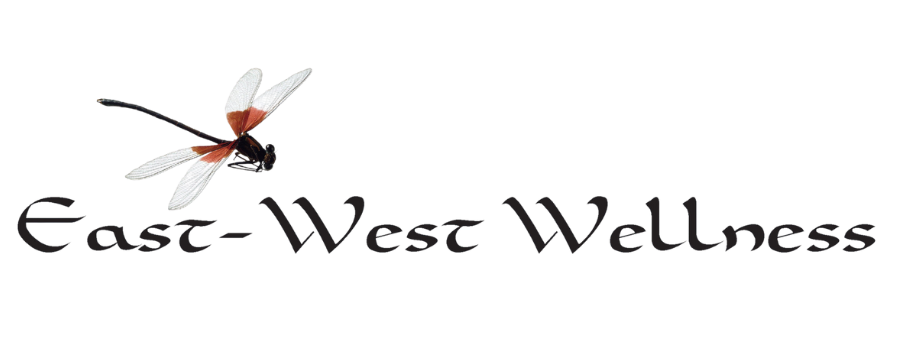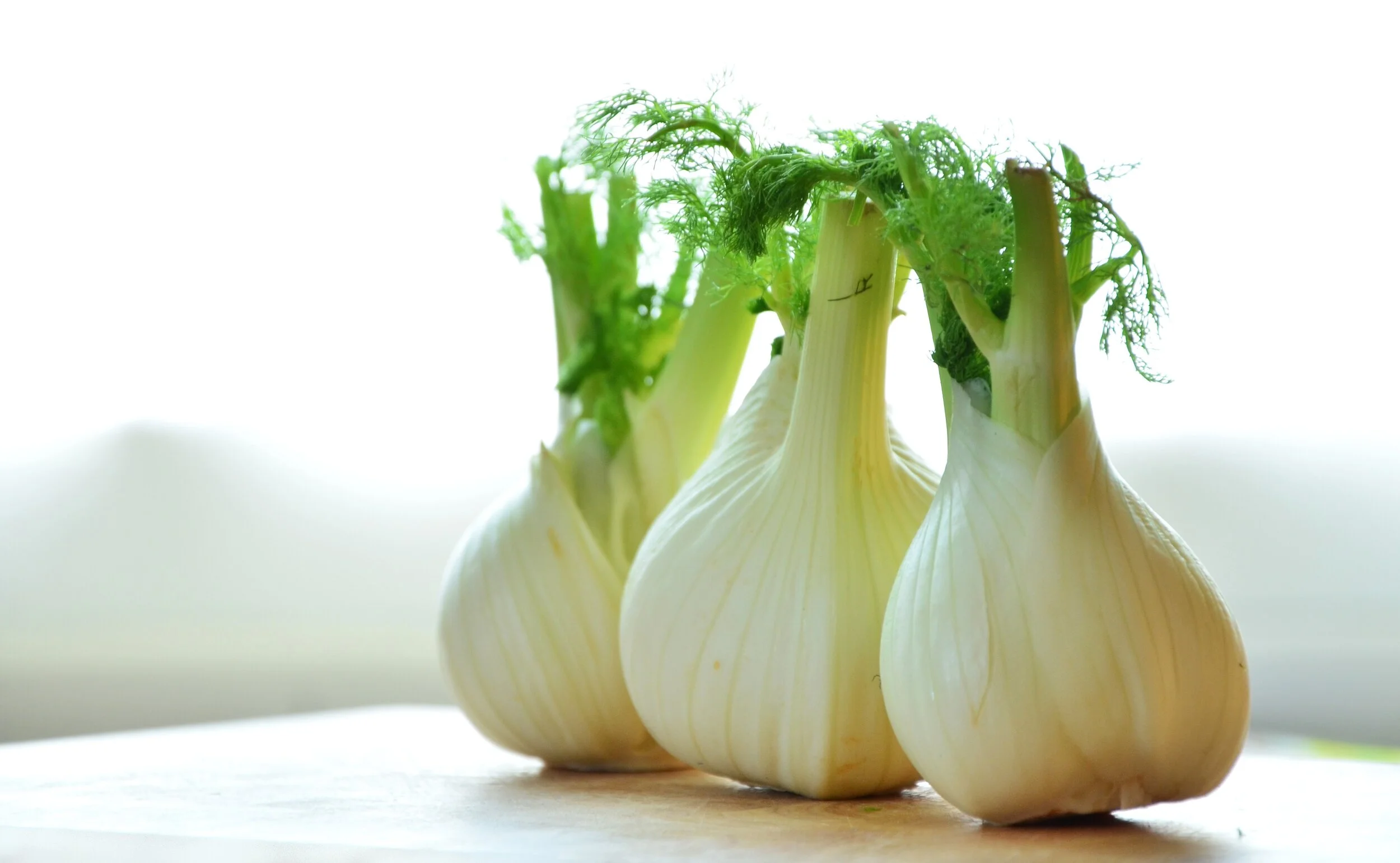Energetics of Fennel: The Flattering Vegetable
During medieval times, fennel meant “Flattery”. Some believed it earned that name because monks in the Middle Ages cooked with fennel and everyone praised them for how good their dishes were. Fennel itself is a vegetable and the seeds (the fruits of the fennel plant) have a whole different energetic, so today we are going to focus on the vegetable fennel.
Fennel is a member of the Umbelliferae family, which also includes celery, parsley, dill, coriander, and anise. Fennel and anise get mixed up often, as they both have the same licorice taste and aroma. Fennels are available all year round, but their peak season is early spring through early fall.
How to Choose and Store
When choosing Fennel, pick a bulb that feels firm and heavy with the layers tightly packed together. The bulbs should be whitish-green in color and have no brown or mushy spots. If the fronds are still attached, they should be fresh and bouncy not be dry or wilted.
Proper storage is key to a delicious and nutritious fennel bulb. It needs to be stored in the refrigerator, but NOT in the coldest section. If too cold the cell membranes in the fennel can rupture, leaking out all the nutrition and good taste. When storing the bulbs, it is best to wrap them in a paper towel. For the fronds, it is best if they are cut off the bulbs and wrapped in a damp paper towel. To prolong the shelf life, do not wash the fennel until you are ready to use it. The bulbs have a shelf life of one week and fronds around 2 days when stored properly.
Fennel Fronds
Nutrition
Fennel is rich in Vitamin C and other health-promoting antioxidants. Fennel’s antioxidants protect the cells from oxidative damage. Fennel’s main phytonutrient, anethole, functions as not only an antioxidant but also as an anti-inflammatory compound. Other stromg antioxidants found in fennel are rutin, quercetin, and kaempferol. It also contains a high level of Vitamin C, a vitamin that has antimicrobial properties and supports a strong immune system. Fennel also contains potassium, a natural electrolyte and an essential mineral for heart health. Like a lot of vegetables, it’s high in nutrients but low in calories, at only 27 calories for one cup of sliced Fennel.
Energetics
Fennel is warm in temperature and sweet-pungent in flavor. Fennel is a great Qi mover. Digestion depends on the healthy and free movement of Qi, so when Qi is stagnant the digestion becomes weak and dampness (phlegm) accumulates. There is a saying in TCM, the Stomach produces dampness, and the Lungs store dampness. Since fennel helps to move Qi in the stomach to stop the production of dampness, it can help alleviate stomaches and nausea, as well as help to reduce phlegm in the lungs leading to shortness of breath and coughing. Fennel is also used in the treatment of parasites, although fennel seeds are much more efficient at that task.
Golden Roast Fennel Mashed Potatoes
Ingredients
3 pounds golden potatoes, peeled and diced
2 cups yellow onions, sliced
2 1/4 pounds fennel, sliced
3 tablespoons olive oil
1 teaspoon kosher salt
Preparation
Pre-heat oven to 375˚F.
Follow the prep technique next to each ingredient.
Combine fennel and onions with half the oil and place in an oven-proof pan, cover with foil and bake at 375 degrees for 45 minutes. Remove from the oven and puree in a food processor until smooth.
Steam or boil the potatoes. Remove from the steamer or drain.
In a mixer mash the potatoes, folding in the fennel puree with the remaining olive oil and the seasonings. Do not overbeat. Serve hot.
Source
https://www.adventhealth.com/recipes/golden-roast-fennel-mashed-potatoes
Mateljan, George. The World’s Healthiest Foods: Essential Guide for the Healthiest Way of Eating. George Mateljan Foundation: Seattle, 2007. Print.
Pitchford, Paul. Healing with Whole Foods: Oriental Traditions and Modern Nutrition. North Atlantic Books: Berkeley, 1993. Print.



